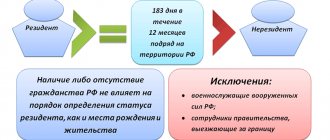All citizens of the country are taxpayers, thereby ensuring the functioning of the institution of the state. However, due to the social orientation of the authorities, the tax burden depends on the category to which the payer belongs. The country's leadership has the authority to establish both federal and local benefits for certain tax payments. Thus, property tax is not charged for pensioners. However, you should be aware that this right is not acquired automatically, but requires the submission of an appropriate application. Let us consider the procedure for obtaining preferential conditions for this type of tax in more detail.
What properties are eligible for the pensioners' benefit?
According to current legislation, property tax benefits for pensioners continue to apply. Moreover, as before, the pensioner does not pay 100% tax on the following real estate:
- apartments and rooms, both in new buildings and in secondary housing stock;
- private residential buildings;
- premises for professional creative activities;
- outbuildings and structures (no more than 50 sq.m. total area) located on garden, vegetable plots of land or private household plots;
- garages and parking spaces.
An indispensable condition for the benefit is that the property is owned by the pensioner.
Regulatory framework
The Tax Code of the Russian Federation contains all the rules related to taxation, incl. property. In addition to this legislative act, there are other regulatory documents regulating issues related to the tax on a privatized apartment for pensioners:
- Tax Code of the Russian Federation;
- Civil Code of the Russian Federation;
- Land Code of the Russian Federation;
- Federal Law No. 218 “On state registration of real estate” dated February 28, 2018;
- Federal Law No. 135 “On valuation activities in the Russian Federation” dated July 29, 1998;
- Law No. 1541-I “On the privatization of the housing stock of the Russian Federation” dated July 4, 1991.
What kind of real estate will a pensioner have to pay tax on?
Even if the property is registered to a pensioner, you will still need to pay tax on the following real estate:
- any capital object whose cadastral value is more than 300 million rubles;
- if the property is for commercial purposes;
- if the property owns more than one piece of real estate of the same type (2 or more apartments, 2 garages, 2 houses, 2 parking spaces);
Question: A pensioner owns two apartments and two garages. What properties do you need to pay property tax for in 2021?
Answer: One apartment and one garage are eligible for a property tax exemption for senior citizens. And for the second apartment and the second garage you need to pay tax on a general basis and in full (see calculation of property (apartment) tax from 2021 based on the cadastral value).
Such rules exclude mass re-registration of real estate in the name of their retired relatives in order to evade payment of property taxes. However, those pensioners who own one type of real estate should not worry.
For the rest of the property, which is not subject to benefits for pensioners, tax deductions apply, as for other taxpayers. That is, there are preferential meters that are not taxed by the state:
- For apartments – 20 sq.m;
- For private houses – 50 sq.m;
- For rooms – 10 sq.m.
The tax deduction amount must be subtracted from the total area of the property. Accordingly, the size of the cadastral value will change proportionally. The tax must be calculated from the amount received.
Question : There are several apartments in the property. The owner is a pensioner. Which apartment does the benefit apply to?
Answer: In the case considered, the owner has the right to independently determine the property to which the benefit will apply. To do this, you must submit a corresponding application for tax relief to the Federal Tax Service.
Question: If a pensioner owns only 1/2 share in real estate, and the other 1/2 share is owned by a non-pensioner, how will the benefit be taken into account?
Answer: Only the pensioner’s share will not be taxed. The other owner will only be able to take advantage of the footage benefit according to his share. That is, 20 sq.m/2 (that is, 10 sq.m) for an apartment or 50 sq.m/2 (that is, 25 sq.m) for a house.
Tax rate in the Moscow region
Land tax in the Moscow Region (hereinafter - MO) is calculated according to 3 types of fiscal rates:
| Purpose of the site | Tariff (% per annum of the cadastral value of the property) |
| 0,3 |
| Construction of a country house | 0,17 |
| Use of land for other purposes | 1,5 |
The Moscow Region is divided into 35 districts - each has its own tariff. Land tax for pensioners in the Moscow region - table of interest rates:
| Municipal district of Moscow region | Fiscal tariff (% per annum of the cadastral value of the property) |
| 15 of them charge a maximum of: | |
| Volokolamsky | 0,3 |
| Voskresensky | |
| Dmitrovsky | |
| Egoryevsky | |
| Zaraisky | |
| Istra | |
| Kolomensky | |
| Lotoshinsky | |
| Lukhovitsky | |
| Mozhaisky | |
| Naro-Fominsk | |
| Serebryano-Prudsky | |
| Taldomsky | |
| Shatursky | |
| Shakhovsky | |
| A fixed tariff is established for all owners of garden plots: | |
| Mytishchensky | 1,5 |
| The rate fluctuates between 0.07–0.3: | |
| Ramensky | 0,07–0,3 |
| Chekhovsky | 0,08–0,3 |
| Odintsovsky | 0,1–0,3 |
| Pavlo-Posadsky | |
| Pushkinsky | |
| Sergiev Posadsky | |
| Klinsky | 0,15–0,3 |
| Leninist | |
| Orekhovo-Zuevsky | |
| Serpukhovsky | |
| Solnechnogorsk | |
| Kashirsky | 0,2–0,3 |
| Krasnogorsky | |
| Lyubertsy | |
| Noginsky | |
| Podolsky | |
| Ruzsky | |
| Stupinsky | |
| Shchelkovsky | |
What documents are needed to apply for benefits?
To receive a benefit for real estate owned by a pensioner, you must submit by December 31 of the current year:
- Application to the Federal Tax Service (). The form is unified and universal. It provides columns for both transport and land taxes (three in one). After submitting an application, the benefit is taken into account automatically for subsequent years (that is, documents are not submitted again).
- Notification (). If the object changes, then you need to submit a new notification in a timely manner (the application for benefits does not need to be duplicated).
- Documents for an apartment, house (copies thereof).
- A copy of the pensioner's certificate. You don’t have to provide the document; it is enough to describe its details in the application. But if the pension fund does not confirm the retiree’s status for tax purposes, then problems will arise.
After December 31st it will no longer be possible to make changes, only for the next year.
If a pensioner has never previously written a statement that he is a pensioner, then the Federal Tax Service assesses tax on all objects. Then it is considered that he did not notify the tax office and refuses the benefit.
If the owner - a pensioner - previously submitted an application, but has not now submitted a notification about the selection of a preferential object, then the Federal Tax Service will itself exempt from tax on the object for which the maximum tax would have to be paid. That. the pensioner will have to pay a minimum tax.
Taxation nuances
The apartment tax for pensioners has several nuances that have already been touched upon in passing.
Expensive real estate
Article 407 of the Tax Code of the Russian Federation provides that benefits do not apply to expensive property worth more than 300.0 million rubles. They will have to pay property taxes in full. But those who found 4-5 million dollars to build a mansion will have money to pay taxes.
Several properties
When owning several objects of the same type of property, one object is withdrawn from the tax base, while the pensioner himself can choose which building or structure the benefit applies to.
What categories of pensioners can benefit from the benefit?
The law does not establish any differences on the basis for receiving a pension: old age, early, in connection with the loss of a breadwinner, disability, or a military pension.
What is important is retirement itself (being included in the pension fund register) and obtaining a certificate.
Also, tax breaks were left for persons of pre-retirement age. Citizens who are 60 years old (men) and 55 years old (women), but have not reached old age pension, will be provided with benefits on an equal basis with full pensioners.
Benefits until 2021
Until 2021, the rules prescribed in the Tax Code of the Russian Federation were in force.
Paragraph 5 of Article 391 identifies categories of citizens who could take advantage of the right to tax breaks. Among them are Heroes of the USSR and the Russian Federation, full holders of the Order of Glory, veterans and disabled people of the Second World War. In addition, there are veterans and disabled combatants and some other categories of citizens. The list included 7 categories, taxpayers from which were provided with a tax deduction in the amount of ten thousand rubles when paying land tax. That is, the owner of the land plot, if he represents a preferential category of citizens, could count on deducting the payment in the form of a fixed amount. The tax authorities took into account this state-guaranteed benefit when calculating the land duty, and the taxpayer received a notification with the tax amount already taking into account the preferential deduction.
Income taxes
Many types of income are not taxed when it comes to pensioners and pre-retirees.
First of all, this is a pension and additional payments to it. If a pensioner continues to work officially, his wages are not taxed, or are taxed at a reduced rate.
A pensioner who purchased real estate can receive a personal income tax deduction under special conditions if the apartment was purchased by him for himself with his personal funds. Proof of this is making the purchase in your name.
True, the purchase price in this case should not exceed 300 million. If the price is higher, the amount minus this 300 thousand is taxed.
Procedure for receiving benefits
The procedure for obtaining benefits itself consists of several successive steps that must be completed. This responsibility is assigned to the person concerned, in this case the pensioner. He is obliged to perform all necessary actions. First of all, you need to collect documents that will confirm the validity of the initiator’s appeal. Then you will need to fill out an application with the appropriate content.
The collected data must be sent to the tax office at the payer’s place of residence. At the end, the specified authority will make a decision. The person will be informed about the results of consideration of the appeal.
Drawing up an application
An application for tax benefits must be made in writing. For this, most often, a ready-made form is used. Although you can write a statement on a regular piece of office paper.
The text should indicate the following:
- The name of the tax authority and its code.
- Information about the type of benefit.
- Type of property.
- Information about the payer - last name, first name, patronymic, place of residence, contact phone number, TIN of the interested person.
- Cadastral number of the land plot.
- Reasons for its use. In this case, the agreement or decision of the local government on the allocation of the site is indicated.
- The name of the document giving the right to the benefit, namely the pensioner’s certificate, the name of the body that issued the certificate, validity date, series, number.
- Temporary period for providing benefits.
- List of attached documents.
- Date of application and signature of the initiator.
- Application registration number.
- Information about the person who accepted the application.
If his legal representative acts on behalf of the interested person, then the number and date of the power of attorney must be indicated.
When submitting an application, it is mandatory to indicate the type of object and its intended purpose. In this case it will be a plot of land. The application must be submitted before November 1 of the current year. Since the benefit is provided to a person for a certain period of time, after the expiration of the specified period it is necessary to confirm your right. Otherwise, the interested party may lose his benefit.
Filing with the tax office
The collected material must be sent to the Federal Tax Service. This is the absolute responsibility of the initiator. The latter can use several common methods.
These include:
- Personal delivery. This option provides for independent transmission of information. In this case, a person does not need to draw up an appeal on his own. He can do this directly at the tax office by seeking the help of a service specialist. The convenience of this method lies in the fact that the initiator has the opportunity to eliminate the mistakes made immediately, as well as receive clarification on all issues of interest. Another advantage of this method is the fact that a person can personally verify that his appeal has been registered and accepted for circulation.
- Transfer through a legal representative. This method is similar to personal delivery. The legal representative will have to have a passport and a power of attorney, indicating the scope of his powers.
- Postal forwarding. This option is convenient because a person does not need to come to the tax office on their own. In this case, it is more correct to use registered mail. The initiator will be notified that the request has been delivered to the initiator. However, this option has its drawbacks. Firstly, a person must complete the application himself. He will not be able to resort to the services of a tax specialist. Secondly, the initiator will not have the opportunity to eliminate the mistakes made immediately. Thirdly, it is impossible to get advice during the process of transferring documents.
- Internet forwarding. In this case, you need to register on a special website of the tax office as a payer, create a personal account and confirm your entry. After this, the initiator will have access to all the capabilities of the resource. To send an appeal, it is necessary to convert all documents and the application into digital format. The person will receive a notification about the results of the operation in his account.
- Submitting an application through the MFC. This option allows you to contact government authorities for any reason, including issues related to taxation. A person will only need to contact the multifunctional center. The specialists will do the rest themselves. During the application process, the person will be provided with an application form and assistance in filling it out. Also, a person will be able to eliminate any inaccuracies and obtain information on issues of interest to him. It should be noted that the MFC acts as an intermediary. That is, the center does not make a decision on providing benefits, but only performs actions related to providing assistance in filling out an application and sending information to its destination.
A person determines any of these options independently, based on the characteristics of the current situation and his capabilities.
After all the data has been received, it is subjected to detailed analysis. Then a decision is made to provide benefits to the pensioner for the period specified in the application, provided that it was sent in a timely manner. If the initiator had the right to reduce payment earlier, a recalculation will be made. This rule applies to the thirty-six months preceding the due date for paying the tax. To do this, you will need to submit another request for recalculation. It indicates the timing and reasons for non-use of benefits, as well as the fact that the person has not previously used benefits.
The citizen must be properly informed about the results.
In practice, the response is sent to the person by mail or delivered against signature. In some cases, the initiator may request that he take the answer himself. However, if he does not appear in person, then the notification is sent by mail to the address specified in the appeal. In any case, it would be correct to obtain documentary evidence of the fact that the initiator received the information. In some cases, a person may be refused. This applies to situations where the information was incomplete or unreliable, or the benefits did not apply to the initiator.
The importance of prompt payment
Let us remind you that the tax service annually sends a notification receipt by mail, which indicates the amount of the state duty. The receipt indicates the amount and deadline for paying the tax. If for some reason such a receipt never reaches your mailbox, it is better to call or come in person to the tax office, where you can clarify the amount of land tax that must be paid before December 1. Otherwise, you risk ending up in debt and receiving penalties for each day of delay. Tax authorities may also impose a fine. As a rule, debtors are sent demands indicating the amount of arrears, penalties and the period within which the debt must be repaid.
If you do not pay the land duty even after submitting a demand, a collection procedure is launched, and through the court the money may be debited from the debtor’s account.
Every taxpayer should be aware that the amount of land tax is calculated, first of all, based on the cadastral value of the site. The final price is determined annually, that is, at the beginning of each tax period (the tax period coincides with the calendar year). That is why the cadastral value may differ from year to year.
To pay land tax on time, you can use the most convenient of the following methods:
- go to the cash desk of any bank with a payment receipt;
- use a special payment terminal (available in many tax authorities);
- through ATMs, terminals of financial organizations;
- through Russian Post;
- through the government services portal (in this case, it is important to go through the registration and authorization procedure in advance);
- through the “Pay taxes” website of the Federal Tax Service.
Rules for calculating land tax
Only those land plots that are within the boundaries and are leased under contracts of perpetual use are subject to tax of this municipality.
The tax amount is calculated based on the cadastral estimated value of one hundred square meters of land.
Local authorities accept requests to accept an interest rate, which will affect the amount of the fee.
The cadastral estimated value of land is determined as of January 1, 2021.
For the preferential category of land tax payers, the following calculation procedure occurs:
- The area of the land allotment is 600.0 square meters = exceeding the area of the preferential allotment;
- The cost is calculated based on the cadastre of the area exceeding the area;
- Cost of excess area x interest rate = amount due.
If the plot belongs to several land users, then everyone pays their part in the shared use of the land.
The tax is calculated depending on the occupied area and is calculated for each individual.
Interest rates
Land tax rates are set independently in each municipality, but there is a maximum when the rate cannot exceed 0.30%.
This maximum applies to:
- To agricultural land;
- Lands of the housing construction fund;
- Land plots for personal gardening;
- Allotments of land for private subsidiary farming;
- Department of Defense lands;
- Allotments of land for border services.
For the remaining land for various purposes, a maximum rate is assigned, which is illegal to exceed - 1.50%.
Land tax is paid before the first of December of the current year, for the previous calendar year, in accordance with the notice that is sent to all taxpayers.
Tax refund procedure
To return the tax payment made on housing, a person must contact the tax office at the place of residence. An application for a refund of the amount of overpaid (collected, subject to reimbursement) tax (fee, insurance premiums, penalties, fines) KND-1150058 is written in any form, indicating that the applicant is a pensioner. A copy of the pension certificate must be attached to the application.
In case of late application for benefits, recalculation is made only for the three previous years.
How to take advantage of benefits: where and when to submit applications
Once a man turns 60 and a woman 55, they can apply for a tax rate review. Since they have not yet become pensioners, not a single benefit will be accrued automatically.
An application to the Federal Tax Service can be sent to:
- Personally;
- By registered mail;
- Through MFC;
- Through the taxpayer's personal account.
The application indicates the circumstances (the occurrence of the appropriate age or other conditions, if such are necessary to receive benefits), as well as the personal data of the applicant. You need to attach documents: passport, documents for property or land, as well as other papers, if any (pension certificate, certificate of disability, certificate of assignment of the status of Chernobyl survivor or hero of the Russian Federation, etc.).
It is better to submit to the Federal Tax Service of the region where the applicant is registered, since most benefits are supported at the regional level. There is only one exclusively federal benefit - for land allotment. In addition, the tax authority in your region can obtain comprehensive information about the rules for providing tax benefits in a specific entity or for you personally.
Types of existing benefits by region of the state
All types of tax benefits can be divided:
- 100.0% tax exemption on a plot of land;
- Discount of 10,000.00 rubles;
- Local discounts on land tax.
There are no approved tax benefits in the tax legislation; there are only social categories of the population recommended for regional authorities, which may, by their decision, have discounts when paying for land:
- Regions give tax breaks to their elderly permanent residents;
- Some regions and municipalities have made tax relief on land for pensioners who have their own real estate and live in it in a given territory and for which they already pay a property tax;
- The region gives relief to non-profit partnerships of gardeners and vegetable gardeners, where the members are pensioners, although according to the law, these members of the partnerships must pay for the collective land in use.
Many regions of the Russian Federation are expanding the list of beneficiaries and also providing a larger discount than the authorities of the Moscow region.
Taxation based on regional fees depends on the work of the authorities, as well as on the economic state of the region and on the receipt of taxes in its budget.







